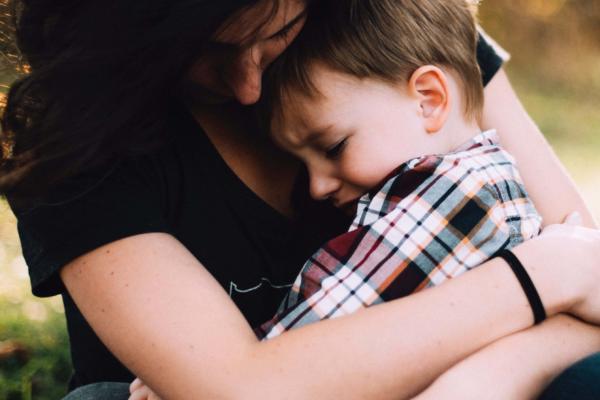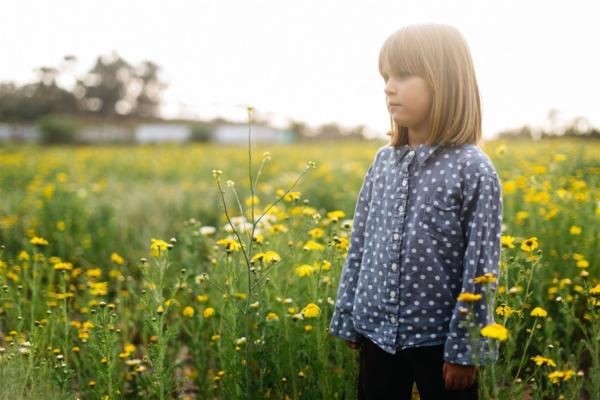Many adoptive and fostering families would agree that their support communities are invaluable to them, whether at church, in the family or within a friendship group.
If you're a member of such a community, supporting friends who have adopted or fostered children, the chances are that you may have witnessed some challenging behaviour from their child. However wonderful a family environment the child has now, the impact of their early trauma can manifest itself in many difficult ways, such as increased anxiety, attachment issues, anger, a need for control, and so on.
Here are six common behaviours exhibited by children who’ve experienced trauma, an explanation of why they might be happening, and some ideas of how you can support both child and parent.
Child acts 'babyish' or young for their age
Whether it's a preschooler still taking a bottle or a dummy, or an older child with a much younger emotional age, looked after children have often missed out on the early nurturing experiences that most of us take for granted.
Even if he did get these experiences in a loving foster home, where there has been a change in carer since birth, a child still may need this nurture from his long-term parents. It helps to establish trust between them, helping to develop the all-important attachment that has so many implications for later life.
The best way to support in this situation is to meet the child where he's at, not encouraging them to grow up quicker than he's able to, and not questioning a parent when they're taking this approach. Adjust your expectations of a child according to his emotional age, not his actual age, and welcome any tips that his parent gives you.
Child lies about their behaviour or runs away
Looked-after children often have deep-rooted shame already, as this article explains. Their early life experiences, being passed from carer to carer, and perhaps also being neglected or abused by those who were supposed to care for them, have led them to believe that they are worthless and no good.
Sometimes, the knowledge that they have done something wrong is too much to bear, so avoidance strategies like lying or running away come into play. Children are faced with a 'fight or flight' option, in order to preserve themselves from further hurt, and often they will choose 'flight'.
You can support a child struggling with this by communicating firmly but gently, in a normal speaking voice, that you're not going to be angry, but that you need to know what has happened.
If a child has run away, check she's safe. She may just have run into a different room, and need a few minutes alone before talking to you. If she's run out of the building, then you'll need to alert parents/carers if they're not already aware, and do all you can to ensure her safety.
Ultimately, you should reassure a child that you will forgive her if she’s done something wrong, and it may be an opportunity to explain God's forgiveness too, as there's nothing too big for Jesus' sacrifice to cover!
Child becomes aggressive
Biting, kicking, punching, hitting, scratching and growling are common behaviours of children who’ve experienced trauma. They are more likely to be directed at those the child feels most comfortable with, i.e. parents or carers, but can also be an issue with other family, teachers or other children.
While it is difficult to see a child reacting in this way, it is important to remember that the root cause is usually some kind of fear.
Care experienced children often have higher levels of fear because of the danger they were in during their early years, or because of the changes in caregiver since birth, or because of a deep sense that they weren't 'good enough' to be kept by birth parents, and a fear that maybe they will lose their adoptive parents too if they don't tow the line.
Anything can trigger this fear: it could be something you've inadvertently said or done - but it might be an event totally outside your control, like a bad dream, a memory, or even the weather. The child can choose 'fight' or 'flight', and this time he chooses to fight.
To support a child who is 'kicking off', it is firstly important to do what you can to eliminate any risk for others, either by moving them or, if this isn't possible, by moving the child in question. As much as is appropriate, allow him to express themselves, maybe by punching a cushion or running around in an open space.
When he's calmed down, offer reassurance on his terms. This can be physical - hugs and kisses - if he wants it to be, but otherwise verbal, with lots of eye contact. You're not going anywhere, you're rooting for him, and you want him to know this.
Child repeatedly makes wrong choices
When our sons came home to us they were 14 months old and loved throwing their (plastic) bowls and plates on the floor. Usually this was when they'd finished a meal, but sometimes it wasn't, and food would be flying everywhere!
We patiently - and sometimes not so patiently - asked them not to do this. It took well over a year for them to stop throwing their bowls and plates - can you imagine?! Such a small, seemingly innocuous behaviour that ground us down because we just couldn't understand why our sons didn't get it.
It took me a couple of years to realise why our children repeatedly and deliberately make wrong choices, even after countless reminders: they are testing us to see if we really will be there for them. They know full well what they're doing, and they're looking to see how we react. However much we love them and tell them we love them, however much we meet their needs and nurture them, they still retain a little bit of fear that we might abandon them, so testing us in this way becomes habit.
You can support a parent whose child is seemingly ignoring their instructions by remembering that secure attachment takes a long time when you haven't known each other from the start.
By remembering just how much healing and processing needs to take place for that child, you can be a helpful support by allowing the parent to deal with the situation and not intervening yourself. This child needs to hear a very clear direction coming from the one they're learning to attach to - hearing it echoed by others only adds to the child's confusion, and may hinder their attachment to their parent.
Child is over-familiar
Do you know a looked after child who is particularly affectionate or chatty, who loves to run up to you and spend time with you?
There is nothing wrong with these qualities in themselves, but in vulnerable children they can sometimes be symptomatic of an insecure attachment. In other words, the child's early life experiences have made it hard for him to securely and exclusively attach to his permanent caregiver/s, and therefore he attaches himself to anyone who will show him any attention.
Of course it is also important for children to have safe adult friends who aren't their parents, particularly Christian role models in their church. If you have a special friendship with a care experienced child in your church, then please know how important this is to their wellbeing and discipleship as they grow up.
The question is: how do we encourage healthy relationships with children without sabotaging attachment to their primary caregiver/s?
You can help the child in what he will struggle to do himself: model healthy boundaries for friendships. These may include:
* setting an end point to conversations, reassuring him that you'll speak again after the service, or next week, so he knows you're not abandoning him, and then walking him across to his family or his friends, so that he has others to talk to and isn't left alone
* sitting with the family, if he wants to sit next to you, rather than having him separate from his family to come and sit with you
* limiting physical contact to what is appropriate (depending on age and relationship)
There are so many variables, however, the best thing you can do is chat to the child's parents about how best to encourage his secure attachment to them, whilst also being a key part of his life.
Child is distant
Although this is the opposite problem to a child being over-familiar, the root cause is the same: insecure attachment. A child may respond by attaching to everybody - or by attaching to nobody.
Think of it as self-preservation: this child has been deeply wounded by the person who was supposed to protect her. She may have been abused or neglected, but even if she hasn't then she'll have been removed from the person whose womb she grew inside, whose voice she heard and whose heartbeat she felt.
The person who was meant to raise her couldn't - and this has left a subconscious imprint on her mind. In order to survive, she has learnt not to attach to anybody, because the last time she did that – even in utero – it didn't work out well.
It can be challenging to deal with a child who is keeping their distance from you, but perhaps even more challenging to witness a child who is being stand-offish with her own parents - parents who have been generous in their love and welcome for her. You want to see her accept this love and grow in confidence, but the more they try to reach out, the further she moves away, and it's heartbreaking.
To support a family in this situation, you will need plenty of patience. Remember where the child has come from. Remember that she is not deliberately keeping a distance - inside, she may yearn for closeness and affection. Remember that the healing process may take years. If the parents are in it for the long-term, respect this and take things at the child's pace.
And - in all these situations - pray. We can help our children to heal and grow from the challenges of their past, but only God has the power to redeem that which is damaged or broken, and make it new.
"See, I am doing a new thing!
Now it springs up; do you not perceive it?
I am making a way in the wilderness
and streams in the wasteland."
(Isaiah 43:19)
Written for Home for Good by Lucy Rycroft.








